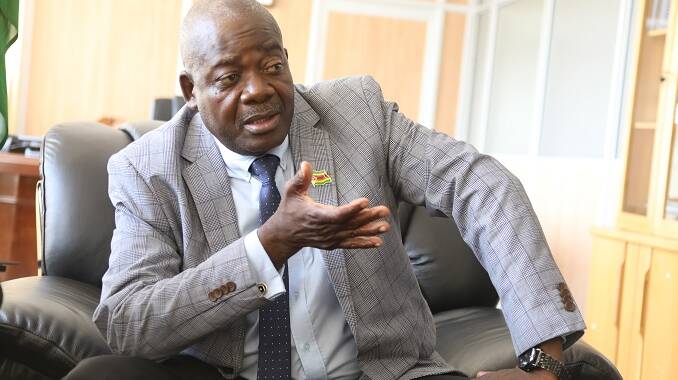
The Sunday Mail

Debra Matabvu
The GOVERNMENT has set up disaster risk management teams at all public schools nationwide to enforce stringent public health measures to curb the spread of cholera and facilitate rapid response to potential weather-induced disasters during the current rainy season, as learning institutions prepare for the beginning of the first term on Tuesday.
The swift action reflects the authorities’ concern over the raging cholera outbreak, which can potentially spread quickly in densely populated school environments.
The teams — drawn from teachers, community health workers and volunteers — will spearhead efforts to maintain strict hygiene standards similar to public health measures that became the norm during the Covid-19 pandemic, such as the introduction of hand-washing stations and related sanitation protocols.
According to the new standard operating procedures (SOPs), each classroom is required to have a functional hand-washing station with running water and soap, while ablution facilities will be cleaned and disinfected thrice a day.
The Government is also distributing water disinfection tablets to all public schools.
The authorities have also reactivated close to 80 rapid response centres countrywide for parents to report schools that unilaterally hike tuition fees, conduct unsanctioned extra lessons and turn away learners for non-payment of fees, among other malpractices.
Officials from the Ministry of Primary and Secondary Education will undertake impromptu spot checks at schools countrywide to assess compliance.
In an interview with the The Sunday Mail, Primary and Secondary Education Minister Mr Torerayi Moyo said: “There is no need for parents to panic. We have put in place measures that stop or minimise the spread of cholera in schools.
“Schools will be using a template of SOPs that was used during Covid-19. “So, we are saying there is need for each school, especially in urban areas, to have running water. Where there is no running water, there should be adequate clean water for hand-washing and ablution facilities.”
School authorities, said Minister Moyo, have been directed to heighten awareness campaigns on cholera.
Several private players have reportedly volunteered to drill boreholes at some public schools.
“The issue needs a holistic approach and all the relevant ministries should come on board,” he added.
“We are also working with our partners such as UNICEF (United Nations Children’s Fund) and various players to ensure that boreholes are drilled in schools across the country.”
Since the outbreak of cholera in February last year, Zimbabwe has recorded 15 137 suspected cases, 1 759 confirmed cases, 14 578 recoveries, 67 confirmed deaths and 266 suspected deaths.
In a separate interview, the ministry’s communications and advocacy director, Mr Taungana Ndoro, said all was set for schools’ opening.
“As a ministry, we will ensure that each school has a disaster risk management team, which should have an operational plan and which conducts regular disaster preparedness drills not just for floods, but also any sort of disasters or emergencies such as strong winds, wild animals, fire, storms, communicable diseases, et cetera,” said Mr Ndoro.
“Our schools promote safety and commit to doing due diligence against any sort of disasters; therefore, we expect a smooth opening to the 2024 school calendar.”
Tuition fees
Minister Moyo said Government will heighten monitoring of schools’ conduct on tuition fees.
He said since the introduction of rapid response centres last year, there has been a drop in malpractices by school authorities.
“We are going to tour schools across the country over the next few weeks starting on Tuesday,” he said.
“Various teams from the Ministry of Education, myself included, will tour schools in all provinces to assess if schools are adhering to the gazetted tuition fees, or whether learners are being turned away for non-payment of fees and if the directive on uniforms is being adhered to.
“Since the introduction of rapid response centres, we have seen a reduction in malpractices in schools.
“There are currently 72 centres and we will only increase the number if there is need, and we will know this after the tour.”
Last month, Government gazetted Statutory Instrument 240 of 2023, which sets this year’s tuition fees.
Commenting on the rapid response teams, Mr Ndoro added: “The complaints (received) range from issues to do with schools that charge unapproved fees and levies, or that charge exclusively in foreign currency, or that oblige parents to purchase uniforms and stationery at certain schools or from a certain supplier.
“There were also complaints against paid-for extra lessons, and the Government has warned and cautioned the respective schools, most of which have complied with Government directives.”
Zimbabwe Teachers Association secretary-general Mr Godwill Taderera said preparations for schools’ opening were at an advanced stage.
“Most schools have now received their water tablets and disinfectants, and we have even made provisions for schools in areas such as Mt Darwin, where there are few cases of cholera,” he said.
“We are also happy with the gazetted tuition fees; it helps with clarity and there is less confusion.”



